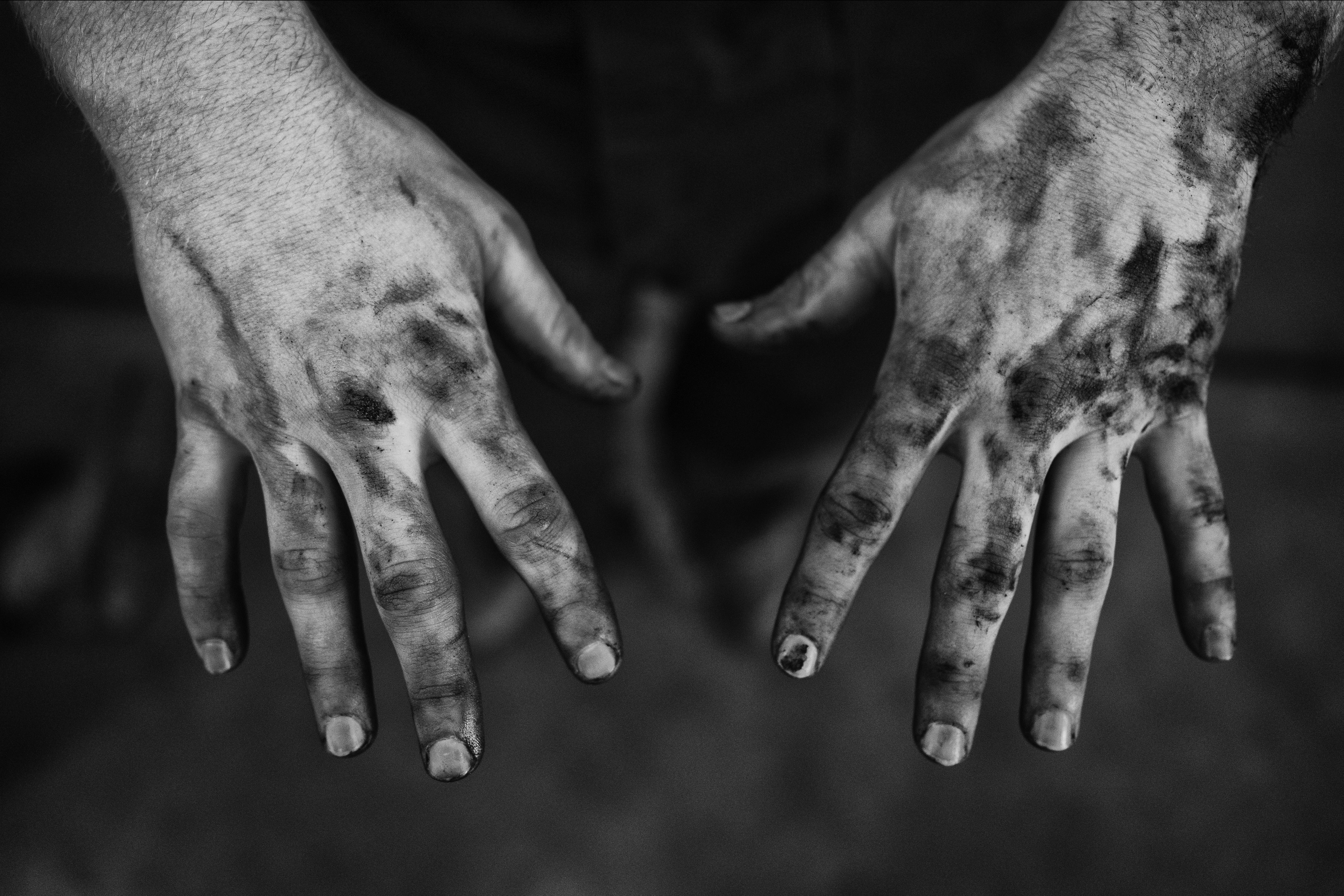Christy Crutchfield
The entire car smelled like natural deodorant, which meant the absence of deodorant. This was a smell she’d gotten used to, actually liked on Owen, but it was overpowering with his friends’ meaty smells mixed in. She breathed through her mouth until her throat was dry. The car would smell like apples soon.
Owen’s fingers were on her thigh, and at least they were driving. Nick was always saying, “If you want your town to be a biking town, you have to treat it like it already is.” Now, he was saying, “We’ll look more conspicuous if we all come on bikes” and “I couldn’t bring the trailer to work with me” and “I biked to Mark’s. Look, we just don’t have time.”
It was a collection day for the boys’ annual Harvest Party, which they’d been throwing since their college days, collecting apples from all around the city and pressing them into cider. There were trampolines. Dogs. Girls in flowing skirts with hula-hoops. By their Fifth Annual, babies had been added.
They’d drive around the “rich neighborhoods,” knock on doors, ask if they could pick the owners’ fruit.
These were the stories that made her want Owen in a dangerous way. These stories made her watch him like a television, then made her ashamed of this comparison. She’d called herself an environmentalist until Owen. After Owen, she said, “I’m working on being an environmentalist.”
After their initial two months of bike rides and hikes, after she happily allowed him to set up a compost bin in her apartment, she had to meet his friends. Now, she was the girl who clasped her elbow in conversations. She drove to work everyday.
Owen squeezed her thigh. “Thanks for coming.”
They didn’t pull onto a big looping street with hundred-year-old trees and brick mailboxes. They pulled into the mall. The shitty mall that only sold athletic shoes and pretzels.
Mark drove to the far end of the lot, dumpsters and Goodwill bins lining one end of the exit, trees lining the other, one apple tree in each concrete island surrounded by mulch.
“How did you get permission for these?” She knew the words were wrong before they left her mouth. But she said them. Of course she said them. “Are we stealing these?”
Owen nosed her shoulder so lightly it made her sleepy.
“Well,” Nick said. “I can’t feel bad about stealing from a mall.”
“They’re not going to use them.” Mark pulled the brake.
She wondered if he wore deodorant when he biked to the office. He did something in finance. She wanted to see him in a tie.
Nick pushed his door open so hard he had to stop it from slamming back on him. “Nobody but the landscapers know these trees even grow fruit,” he said. “Even exist.”
“She’s got a point though, right?” Owen said. “The actual truth?”
“It’s fine,” she said, but she couldn’t make her words soft. “I’m not telling you to stop.”
She and Owen had reached a point she didn’t understand. While he was on his way over, she’d open the wine. She’d leave the last few sips in her glass so he’d think she just started. This is fun, she’d say. Just have fun and it will be fun.
No cops came. No rinky-dink security carts. Owen preferred being shoeless, even though they were firmly into fall. His long fingers and toes were made for tree climbing. Nick and Mark held the crate high for him.
When the boys moved on to the low hanging fruit, so did she, but Owen stayed on his branch, blonde beard picking up the orange streetlight. He took a big bite of the pink apple, whipped his face sideways. He knew she was watching. When he tossed it to her, she took a big bite too, and he smiled.
The car smelled much better on the drive home, the crate between her and Owen.
And the weather at the Harvest Fest was perfect, warmer than it had been all month. Their attempt to make hard cider failed, but the new batch was tart and perfect.
Her apple crumble was simpler than Nick’s and more successful. His oats were organic but her sugar was Fair Trade. This got an actual laugh out of him. Owen’s friends had girlfriends, but they were not dreadlocked, and none of them went to community college or were another race or grew up different. They laughed when she told them her summer camp story about a bottle of improperly stored apple juice that had fermented under her bunk. As rising eighth-graders, they thought they had smuggled in wine, but it ended up a fizzy mess that made them sick on field day. Someone repeated her punch line.
They also laughed at Owen on the trampoline. He couldn’t land on his feet. His attempt at back flips ended in belly flops. But everyone was laughing. But he looked so perfect. But everyone could only like him when his eyes were that big, even from far away. She gripped the grass between her toes and thought of pulling. She knew it was only a matter of time until she never saw him again.
If she could, she would have moved toward him, his hand out, motioning her forward, beckoning her between tumbles.
Christy Crutchfield writes and teaches in Western Massachusetts. Her works have appeared in Mississippi Review online, the Goodmen Project, the Collagist, and others. She blogs about writing and other monsters at thehopelessmonster.blogspot.com.

